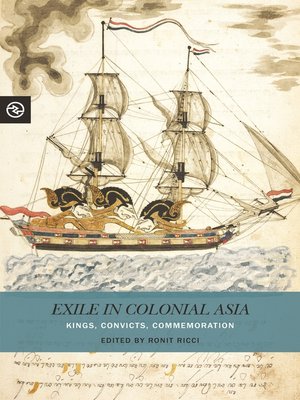Exile in Colonial Asia
ebook ∣ Kings, Convicts, Commemoration · Perspectives on the Global Past
By Ronit Ricci

Sign up to save your library
With an OverDrive account, you can save your favorite libraries for at-a-glance information about availability. Find out more about OverDrive accounts.
Find this title in Libby, the library reading app by OverDrive.



Search for a digital library with this title
Title found at these libraries:
| Library Name | Distance |
|---|---|
| Loading... |
Exile was a potent form of punishment and a catalyst for change in colonial Asia between the seventeenth and early twentieth centuries. Vast networks of forced migration supplied laborers to emerging colonial settlements, while European powers banished rivals to faraway locations. Exile in Colonial Asia explores the phenomenon of exile in ten case studies by way of three categories: "kings," royals banished as political exiles; "convicts," the vast majority of those whose lives are explored in this volume, sent halfway across the world with often unexpected consequences; and "commemoration," referring to the myriad ways in which the experience and its aftermath were remembered by those exiled, relatives left behind, colonial officials, and subsequent generations of descendants, devotees, historians, and politicians. Intended for a broad readership interested in the colonial period in Asia (South and Southeast Asia in particular), the volume encompasses a range of disciplinary perspectives: anthropology, gender studies, literature, history, and Asian, Australian, and Pacific studies.
In addition to presenting fascinating, little-known, and varied case studies of exile in colonial Asia and Australia, the chapters collectively offer a sweeping, contextualized, comparative approach that links the narratives of diverse peoples and locales. Rather than confining research to the European colonial archives, whenever possible the authors put special emphasis on the use of indigenous primary sources hitherto little explored. Exile in Colonial Asia invites imaginative methodological innovation in exploring multiple archives and expands our theoretical frontiers in thinking about the interconnected histories of penal deportation, labor migration, political exile, colonial expansion, and individual destinies.







